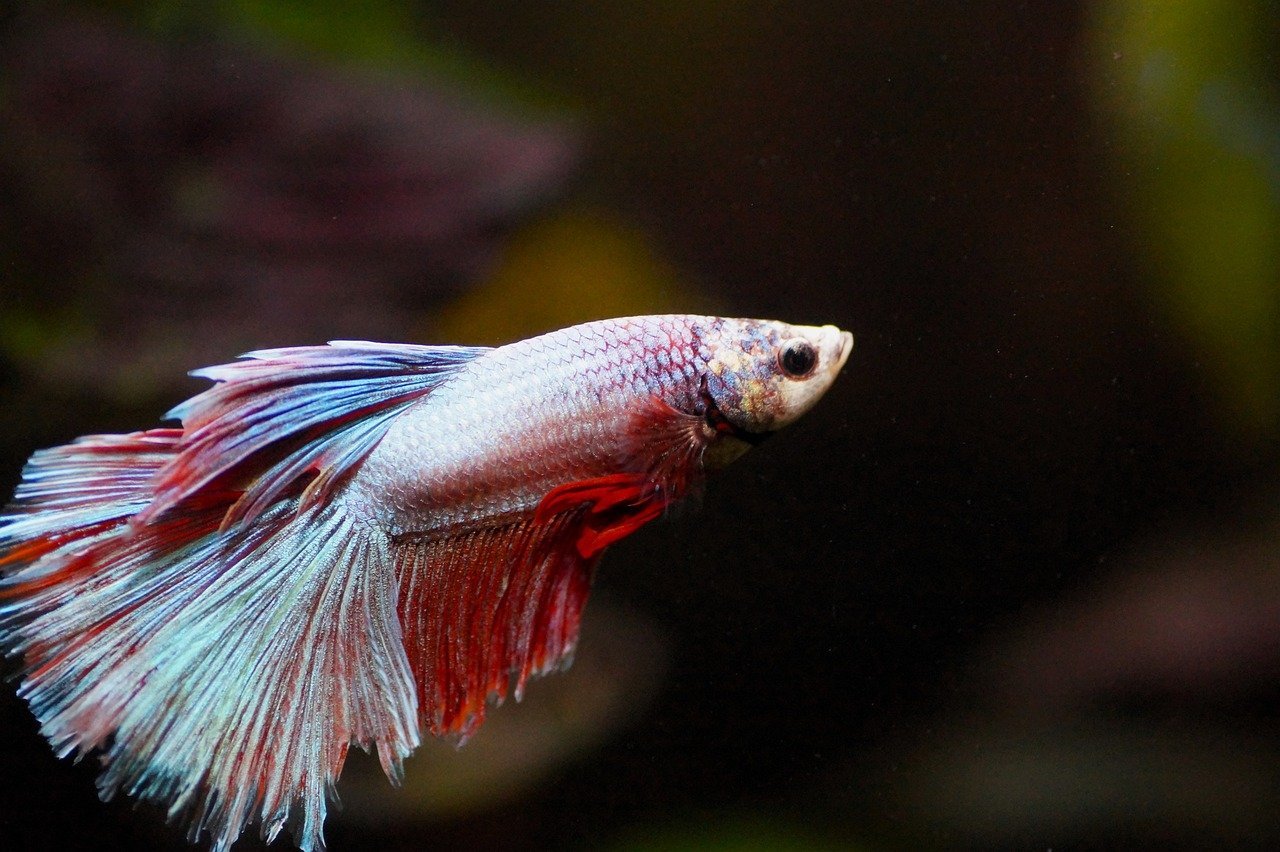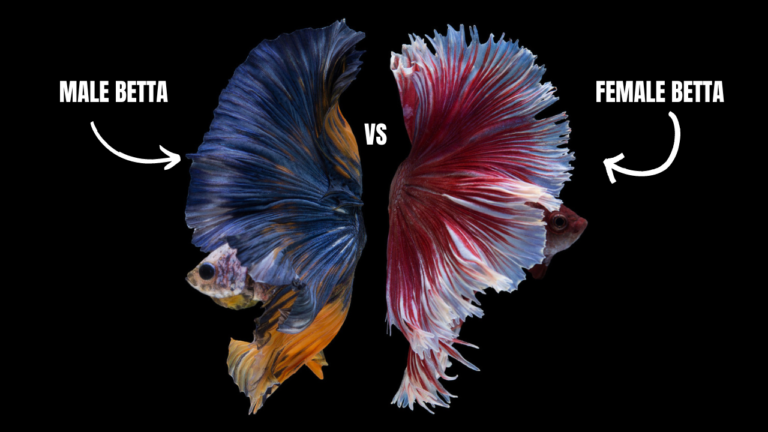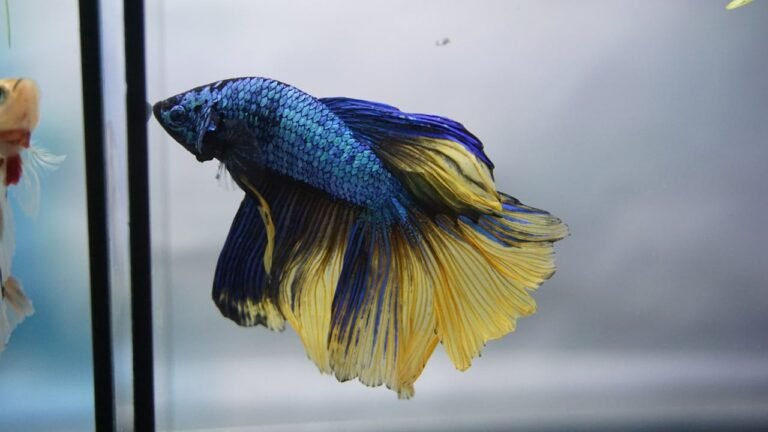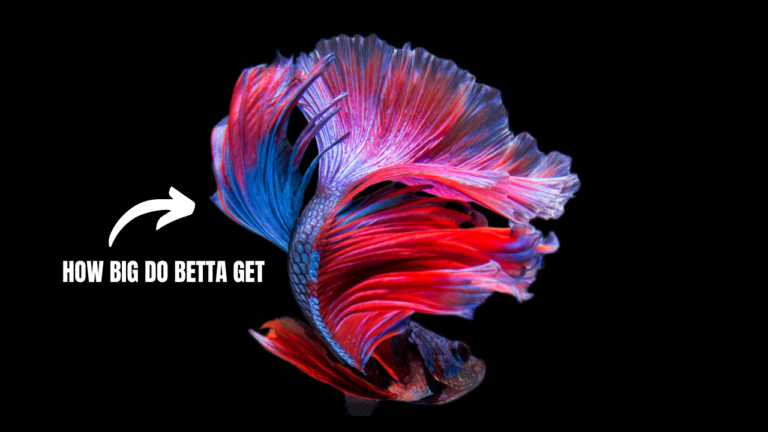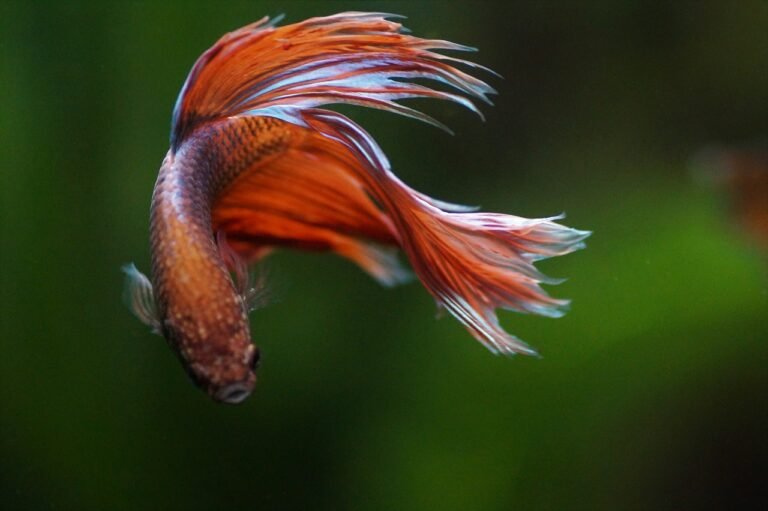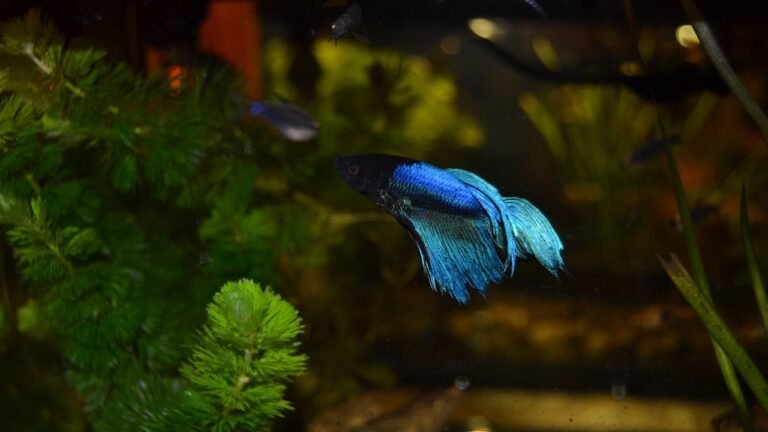Siamese fighting fish, also known as betta fish, are a captivating species that have gained immense popularity among aquarium enthusiasts worldwide. These vibrant and ornamental fish, native to the rice paddies and ancient Khmer empire of Southeast Asia, are renowned for their striking colors, flowing fins, and fascinating behavior. However, one question that often arises among prospective and experienced betta owners alike is, “How long do betta fish (siamese fighting fish) live?”
Average Lifespan of Betta Fish
The average lifespan of siamese fighting fish can vary considerably, but generally ranges from two to five years. It’s important to note that this lifespan is heavily influenced by various factors, including their living conditions, water quality, diet, and overall care. In captivity, with proper care and favorable conditions, betta fish can potentially live for up to seven years or even longer in rare cases.
Factors Influencing Lifespan
Several factors play a crucial role in determining the lifespan of your siamese fighting fish. Understanding these factors can help you provide the best possible environment and care, ultimately increasing the longevity of your aquatic companion.
Factor #1 Water Quality
Maintaining high water quality is paramount for the health and longevity of siamese fighting fish. Poor water conditions such as high levels of ammonia nitrites or nitrates can be detrimental and shorten their lifespan significantly. Regular water changes, proper filtration and monitoring water parameters are essential to ensure a healthy environment for your betta.
Factor #2 Diet and Nutrition
A well-balanced and varied diet is crucial for the overall well-being and longevity of siamese fighting fish. Providing a combination of high-quality pellets freeze-dried or frozen foods and occasional live foods can help ensure your betta receives the necessary nutrients for optimal growth and health.
Factor #3 Tank Size and Environment
While siamese fighting fish can survive in small containers, they thrive best in larger aquariums with ample swimming space and hiding spots. Overcrowding or housing bettas in overly small tanks can lead to stress aggression and a shortened lifespan. Additionally maintaining appropriate water temperature and providing suitable decor and plants can create a stimulating and enriching environment for your betta.
Factor #4 Genetics and Breeding
The genetic makeup and breeding practices of siamese fighting fish can influence their lifespan. Reputable breeders aim to produce healthy and robust bettas while inbreeding or poor breeding practices can lead to genetic weaknesses and shorter lifespans.
Signs of Aging
As siamese fighting fish age they may exhibit certain signs that can help you identify their advancing years. Here are some common indicators of aging:
- Fading Colors: The vibrant colors of siamese fighting fish may start to fade or become dull as they grow older.
- Fin Deterioration: The flowing fins of bettas can become tattered, ragged or develop holes or tears with age.
- Lethargy: Older bettas may become less active and spend more time resting or hiding.
- Loss of Appetite: A decrease in appetite or difficulty eating can be a sign of aging.
- Sensitivity to Water Quality: Older bettas may be more susceptible to changes in water quality and stress.
Common Health Issues and their Impact on Lifespan
There are several common health issues that can affect bettas’ lifespan if left untreated. Some of these include:
Fin Rot – This is caused by bacteria or fungus which makes fins deteriorate until they become raggedy looking.
Ich (White Spot Disease) – It’s characterized by white spots on the body & fins due to a parasitic infection called Ichthyophthirius multifiliis (ich).
Velvet Disease – It’s caused by another parasite known as Piscinoodinium pillulare which gives fish a velvety appearance or looks like dust has settled on them.
Dropsy – This is not a disease itself but rather a symptom of underlying problem(s) such as kidney failure where fluid accumulates in the abdomen making it appear swollen & scales stick outwards giving fish pine cone like appearance.
Swim Bladder Disorder – It affects the ability of betta to swim properly or maintain buoyancy due to abnormality in the swim bladder organ.
It’s important to detect and treat these health issues promptly if you want your betta fish to live long.
How to Determine the Age of a Betta Fish
Determining the exact age of a betta fish can be challenging, as their growth rates and aging processes can vary. However, there are a few methods that can provide an approximate age estimate:
- Size and Growth Rate: Observe the size and growth rate of your betta. Younger bettas tend to grow faster, while older ones grow more slowly or stop growing altogether.
- Color and Fin Quality: Assess the vibrancy of colors and the condition of the fins. Older bettas may have faded colors and tattered or torn fins.
- Behavior and Activity Level: Monitor your betta’s behavior and activity levels. Older bettas may become less active, spend more time resting, and have a decreased appetite.
- Obtain Information from the Breeder or Seller: If you purchased your betta from a reputable breeder or seller, they may be able to provide information about the betta’s age or approximate hatch date.
It’s important to note that these methods provide estimates rather than precise ages, as individual bettas can age differently based on various factors.
Providing Proper Care and Nutrition
To ensure your betta fish lives a long and healthy life, it’s essential to provide proper care and nutrition. Here are some key considerations:
Feeding and Diet
Betta fish are carnivores and need a varied diet consisting of high-quality pellets, freeze-dried or frozen foods, and occasional live foods. You should feed them the right amount which is usually a few pellets or a small portion of other foods once or twice per day. Overfeeding can cause water quality problems as well as health issues.
Tank Setup and Maintenance
Bettas need an aquarium that is well-maintained and cycled with appropriate filtration, heating, and lighting. It is recommended to have at least a 5-gallon tank because larger tanks provide better water stability and more swimming space. Regular partial water changes, gravel vacuuming, and monitoring water parameters are necessary for keeping the environment healthy.
Enrichment in the Environment
Creating an interesting environment can help promote overall wellbeing and longevity in bettas. Use live plants, caves, or other hiding spots to make the tank look natural and engaging. Also think about adding tank mates that get along with bettas such as certain species of tetras, corydoras catfish or snails.
Prevention & Treatment of Diseases
Keep an eye on your betta for any signs of illness or distress like loss of appetite, lethargy or abnormal behavior. Identifying health problems early on can prevent complications from arising later on while also increasing chances for recovery in bettas themselves. Quarantine new fish before putting them into contact with other fishes living together in one tank so as not to spread diseases/parasites around.
Care To Maximize Lifespan
To make sure that your betta lives longer you must take good care of your betta fish. Below are some important steps:
Create a Suitable Tank Environment: Set up a tank with at least 5 gallons capacity, filter, heater and proper lighting. Decorate the tank with live plants, caves or other hiding spots to make it look natural and interesting.
Maintain Good Water Quality: Do regular partial water changes (25-50% weekly) and monitor temperature, pH, ammonia, nitrites and nitrates levels in the water. Use high-quality water conditioner to remove chlorine and other harmful substances from tap water.
Provide Balanced Diet: Feed your betta fish with high-quality pellets, freeze-dried or frozen foods as well as occasional live foods. Make sure you vary its diet so that all necessary nutrients can be obtained by the fish.
Enrich The Environment: Rearrange tank decorations from time to time so as to create a dynamic environment for the fish. You may also consider adding compatible tank mates like tetras, corydoras catfish or snails which will provide social interaction for your betta fish thus preventing boredom.
Watch Out For Signs Of Illnesses: Regularly observe your betta fish for any signs of diseases such as loss of appetite, lethargy or abnormal behavior. If you notice anything unusual take immediate action by consulting a qualified aquatic veterinarian or experienced hobbyist.
Quarantine New Fishes: Always keep new fishes separate from those already living together in one tank until they have been quarantined for at least two weeks. This is done in order to prevent spread of diseases/parasites among them.
Lighting And Heating Requirements: Maintain appropriate lighting conditions and water temperature (usually between 76-82°F or 24-28°C) which mimic the natural habitat of bettas thereby promoting their overall health and well-being.
By following these steps and giving careful attention, you can make the best environment for your betta fish so that they have a long and happy life.
Creating an Ideal Environment
Creating an ideal environment for your betta fish is important to their overall well-being and lifespan. Here are some things to consider:
Tank Size and Setup
Bettas can survive in small containers but they do best in larger aquariums with plenty of space to swim around and hide. A minimum tank size of 5 gallons is recommended, but bigger is always better. Make sure the tank is properly cycled and has a filter, heater, and appropriate lighting.
Water Quality and Maintenance
Keeping the water quality excellent is vital for the health and longevity of your betta fish. Do regular partial water changes (25-50% weekly) and test water parameters such as temperature, pH level, ammonia, nitrites, nitrates etc. Use a good quality water conditioner to remove chlorine or other harmful substances.
Decorations and Enrichment
Add live plants, caves or other hiding spots in the tank to create a natural environment which stimulates them mentally. Rearrange decorations from time to time so that they don’t get bored. You may also think about adding some compatible tank mates like tetras, corydoras, catfish or snails for social interaction and a more dynamic ecosystem.
Heating and Lighting
Bettas prefer warm water temperatures ranging between 76-82°F (24-28°C). Provide them with an adjustable aquarium heater that maintains this range consistently. Also ensure there’s adequate lighting either through suitable light fixtures or exposure to natural sunlight.
Substrate and Plants
Choose appropriate substrate like gravel or planted aquarium soil which creates a natural feel while being comfortable for your betta fish too. Live plants not only enhance the beauty of the tank but also provide shelter points; oxygenate it as well as serve as a natural food source for your betta.
By creating an ideal environment that closely resembles their natural habitat, you can enhance overall health in addition to reducing stress levels thus increasing the chances of them living longer and happier lives.
Frequently Asked Questions
Here are some frequently asked questions about the lifespan of betta fish:
- How long can betta fish live in a bowl or vase?
Although they can survive in small containers such as bowls or vases, these environments are far from being ideal and may significantly reduce their lifespan. Bettas need larger tanks with proper filtration systems, heaters and regular water changes to thrive well.
- Do betta fish live longer in community tanks or alone?
If tank mates are carefully selected and compatible with each other then bettas may have a longer life span when kept together in community tanks. However, even if kept alone they can still live for quite some time provided that the tank is big enough and offers suitable conditions.
- Can betta fish live longer than 5 years?
Yes, while the average lifespan of betta fish is between 2-5 years; some individuals which receive good care can survive up to 7 years or more on rare occasions.
- Do female betta fish live longer than males?
There isn’t any significant difference between male and female bettas’ lifespans; it mainly depends on how well they are taken care of plus the kind of environment where they live.
- Can stress make a betta fish live less?
Yes, it can. Stress can be very dangerous to the life of a betta fish. Stressors such as dirty water, aggressive tank mates and lack of hiding spots may cause stress which in turn leads to poor health and shorter lifespan.
- How do I know if my betta fish is old?
Some signs that your betta fish are getting older include dulling colors, fin rotting, being lazy or sleeping more often than usual, not eating as much food as before and becoming more sensitive to changes in water quality.
- Is there any way for me to extend my betta fish’s life through taking care of it properly?
Absolutely! You can greatly increase the number of years your betta lives by giving them everything they need. This includes providing them with an appropriate tank size/environment, clean water always (good filtration system), balanced diet / nutrition and mental stimulation.
Takeaways
Betta fish are beautiful aquatic pets that can bring joy and color to any aquarium. On average they live between 2-5 years but with good care these vibrant creatures could potentially reach 7 or even more years old. To help them achieve this we must understand what affects their lifespan; create suitable living conditions for them such as tanks with hiding places; maintain high standards of hygiene through regular cleaning routines while also ensuring that nutrition levels remain optimal throughout their lives

